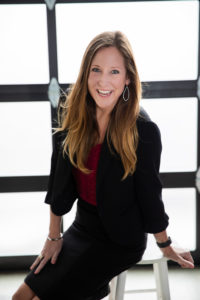“Ethics is knowing the difference between what you have a right to do and what is right to do.” – Potter Stewart, Former Associate Justice of the Supreme Court of the United States
By now, I’m sure most of you have some knowledge of the U. S. Federal Government’s Payroll Protection Program (PPP). The program was rolled out in April 2020 at the height of the pandemic (well, let’s hope it was the height) with the intent of helping small businesses that were impacted by the pandemic (declining revenues due to closures, etc.) who otherwise would not have the funds readably available or the ability to obtain loans necessary to pay employees and other essential operating expenses. The intent of Congress was pretty clear – small business with no funds and/or no ability to obtain the funds to sustain the business.
In the weeks and months following, businesses, both large and small, applied for the loans. It is reported that hefty loans for “sizeable” businesses crowded out many small businesses… that on the face may have had the greatest needs within the intent of the program.
Now on to the ethics part…
It is easy to imagine that all businesses have been impacted by the pandemic. Most have been negatively impacted – but some have benefited (hello Amazon and our new example to follow – keep reading). In any event, all companies had a decision to make when the PPP was rolled out. It appears to me that all companies could be categorized ethically by their reaction and response to the PPP.
There were the companies that were large, well-capitalized, and generally capable of weathering the storm. This group rejected the thought of applying for the funds. They clearly did not meet the intent of the program and presumably decided that it would be inappropriate (or unethical) to receive the funds. We’ll call this group the “big business ethicists.” These businesses knew immediately “what is right to do.”
There were those who, although might be considered large, well-capitalized, and therefore not qualified, but nonetheless negatively impacted, decided to test the waters, applied for, and in some cases in the confusion of the PPP rollout, received the loans. I would call this group the “(un)ethical opportunists” who rationalized their questionable ethics, who knows how and why. Many in this group, when the loans were publicized, were shamed into returning the loans (remember Ruth’s Chris Steak House chain repaid $20 million; Shake Shack returned $10 million; AutoNation gave back $77 million; and The Los Angeles Lakers, $4.6 million). Maybe now they can be called “reformed ethicists.” They were clearly confused, at first, between “what they had a right to do and what is right to do.”
Then there were the genuine small businesses that clearly were impacted (e.g. restaurants), that were mandated to close, and who did not have any other readily available sources for funds to keep the business together – to pay employees and immediate operating expenses (e.g. rent). This group was clearly the target of the program and had every right to apply for and receive the federal loans. We’ll call this group the “small business ethicists” for their efforts to look out for the welfare of their employees. They knew they had not only “the right to do it (obtain PPP loans), but it was also the right thing to do (save jobs and businesses for the future).”
Now the last category – the “irredeemably unethical.” These are the businesses (could be large, could be small) who actually benefited from the pandemic, but nonetheless applied for and received PPP loans. This is the group of businesses that saw an opportunity to receive a government grant, (and remember, the loan is most likely to be forgiven) motivated by greed that in no way met the spirit and intent of the PPP. These businesses may have rationalized their actions based on their “technical” right to receive the loans, but they failed completely on “ethical” grounds – causing real harm to those businesses in dire need of the loans.
If you think this didn’t happen, just check out one example: Lazydays RV, a company specializing in the sales and service of recreational vehicles, an industry that was absolutely positively impacted by the pandemic.
Lazydays RV issued the following preliminary financial report for the quarter ending June 30, 2020:
- RV unit sales increased 40% to 2,935 units, versus 2,092 units in the second quarter of 2019.
- Total revenue increased 30% to $214 million, compared to $169 million in the second quarter of 2019.
- Adjusted EBITDA increased 52% to $15.1 million, versus $9.9 million in the second quarter of 2019.
- They ended the quarter with a cash balance of $62 million.
- Oh, and they reported they are increasing inventory levels in anticipation of continued strong sales.
And yep, you guessed it, when the latest PPP loan information was released in July by the U.S. Treasury and Small Business Administration, it was reported that Lazydays RV received a PPP loan in the range of $5 to $10 million. To this I say, Lazydays is “exhibit A” in the “irredeemably unethical” category.
So, I’ll just end this blog where we started by repeating Justice Potter Stewart:
“Ethics is knowing the difference between what you have a right to do and what is right to do.”
Need Ethics CPE? Book your virtual 1-hour, 2-hour, or 4-hour Ethics training with Jo today! Email Jo@AuditConsultingEducation.com.
Amanda “Jo” Erven, CPA, CIA, CFE, is the President and Founder of Audit. Consulting. Education. LLC. After a successful career in external/internal audit and accounting, Jo is now an active Internal Audit Strategist, Management Consultant, Higher Education Professor, Author, and Trainer/Speaker, providing Continuing Professional Education (CPE) hours, live and virtually, to organizations across the globe. Jo’s motto says the most about her personal and professional outlook: “Good things come to those who wait… but don’t. You deserve better than good.” Every one of her books and presentations focuses on that proactive stance, and how we can immediately connect our actions to our values.


